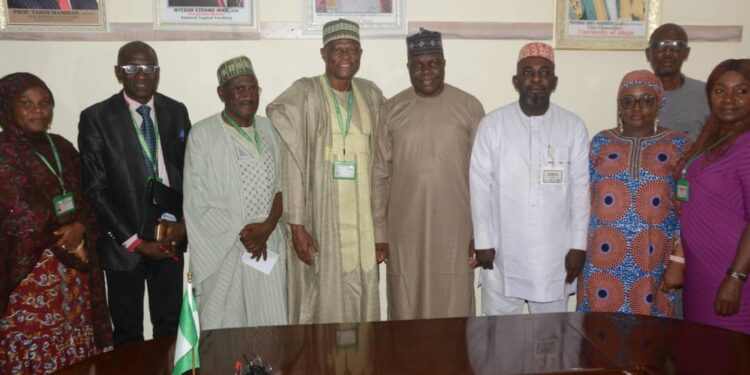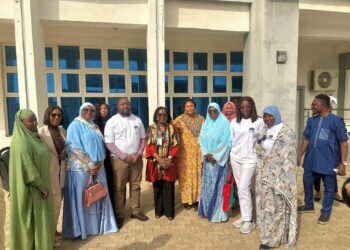BY ABUBAKAR YUSUF
The University of Abuja (UofA) is taking a significant step forward in research and development by partnering with the National Biotechnology Research Development Agency (NABRDA) and the Sheda Science and Technology Complex (SHESTCO).
These partnerships aim to promote cutting-edge research and development across various fields.
Under the guidance of outgoing Vice-Chancellor Professor Abdulrasheed Na’Allah, a Memorandum of Understanding (MOU) has been signed with these federal research agencies.
The collaboration also extends to the National Space Research Development Agency (NASRDA) and the National Institute for Pharmaceutical Research and Development (NIPRD).
Head of the Department of Pharmaceutical Microbiology and Biotechnology at the University of Abuja, Professor Rasak Funsho Atata, shared insights during a press briefing on Monday.
“We were challenged by Professor Na’Allah to think outside the box and find solutions to the numerous problems facing our country using research,” Atata said.
He emphasized that the scope of research should go beyond pharmaceutical departments to address a wide array of national issues.
“The research should be all-encompassing, addressing myriads of the country’s problems to proffer solutions,” he stated.
Professor Na’Allah highlighted the importance of university research impacting the country positively.
“Our universities should do more than teaching and learning; they should engage in in-depth research that directly benefits the country,” he asserted.
He noted the limitations of current resources and funding, stressing the need for additional support from government and donor agencies.
“The time has come to give back to the government in all areas of socioeconomic, political, and infrastructural development through university inputs,” Na’Allah remarked.
He encouraged academics to move beyond relying on research grants and to advance ahead of time.
Professor Atata praised the Vice-Chancellor’s vision, stating, “We are grateful for the challenge of independent investigations, utilizing available science-based government agencies.”
He noted that the heads of these agencies were enthusiastic about the collaboration, showing readiness to assist in various research areas.
The research partnerships align with the university’s capacity, equipment, and infrastructure in the six Departments of Pharmaceutical Sciences.
Atata mentioned that the Vice-Chancellor has provided sufficient space to start producing pharmaceutical products for local consumption, including within the university community.
Looking forward, Atata expressed optimism about the new research areas’ potential to address drug discovery and production, utilizing local materials and conducting more clinical work.
He thanked the partnering research agencies for their collaboration and support in advancing these initiatives.











